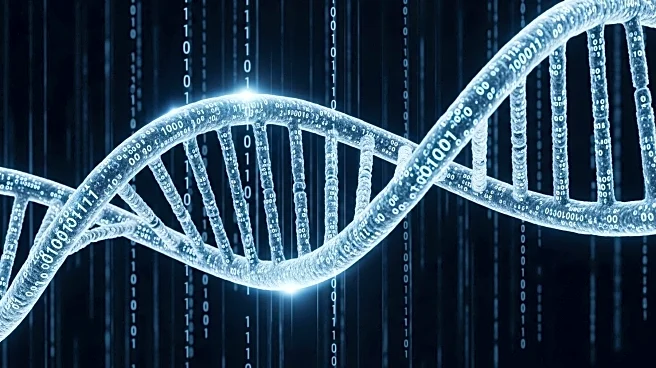What is the story about?
What's Happening?
The biotech industry is increasingly integrating coding and data skills into its operations, with projections indicating that by 2035, over 60% of biotech job roles will require these competencies. This shift is driven by the need to decode the human genome and accelerate drug discovery, necessitating professionals who can merge biological knowledge with coding expertise. High-demand coding jobs in biotech include roles such as Bioinformatics Programmer, Computational Biologist, Data Scientist, Biostatistical Programmer, Software Engineer, and AI/ML Engineer. These positions focus on handling big data sets, building databases, and working with algorithms to solve complex scientific problems. Employers are seeking candidates with strong coding fundamentals, an understanding of biology, hands-on project experience, and a problem-solving mindset.
Why It's Important?
The integration of coding skills in biotech is crucial for advancing scientific research and improving patient outcomes. As coding becomes central to biotech innovation, it opens up high-paying job opportunities for individuals who can bridge the gap between biology and technology. This trend is expected to drive significant advancements in areas such as AI-driven drug discovery, single-cell and multi-omics data analysis, and lab automation. The demand for coding skills in biotech highlights the industry's shift towards data-driven approaches, which can lead to faster and more efficient research processes, ultimately benefiting healthcare and pharmaceutical sectors.
What's Next?
The biotech industry is poised for further growth in coding-related roles, with emerging trends such as AI-driven drug discovery and digital twins of cells and patients shaping the future. As the industry continues to evolve, professionals with coding skills will be at the forefront of innovation, driving advancements in genomics, transcriptomics, and proteomics. Employers are likely to prioritize candidates who demonstrate adaptability and a willingness to learn new technologies, ensuring they can keep pace with the rapidly changing landscape of biotech research.
Beyond the Headlines
The increasing reliance on coding in biotech raises ethical and legal considerations, particularly in areas like AI-driven drug discovery and data privacy. As coding becomes integral to scientific research, there is a need for clear guidelines and regulations to ensure responsible use of technology. Additionally, the shift towards data-driven approaches may require a reevaluation of traditional research methods, prompting discussions on the balance between human expertise and technological innovation.
















